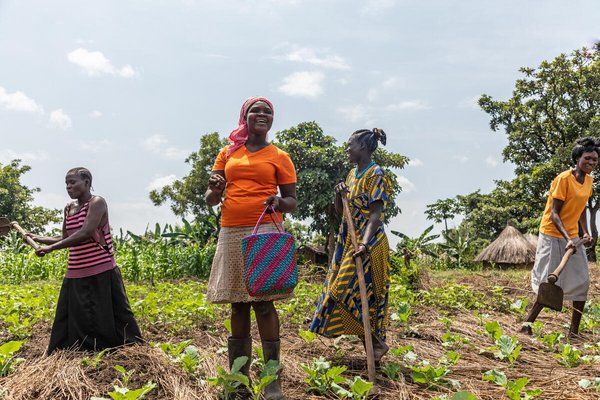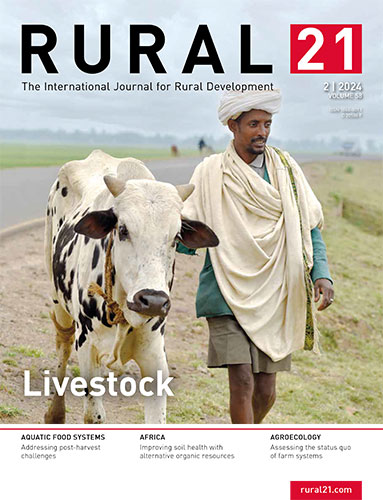- Share this article
- Subscribe to our newsletter
Accelerating women’s empowerment in agrifood systems
With the aim of promoting greater alignment of policy and outcomes on gender, the Food and Agriculture Organization of the United Nations (FAO) has launched the initiative Commit to Grow Equality (CGE), FAO reported in September 2024.
The CGE initiative, formally begun earlier this year, has attracted partners across sectors and could benefit up to 54 million women world-wide, more than one of every ten women working in agrifood systems. To support this, an estimated USD 1 billion of investments will initially be aligned to CGE.
Correcting the gender gap in agrifood systems would dramatically reduce the world-wide hunger rate, raise the incomes of hundreds of millions of people and add USD 1 trillion to global gross domestic product, offering one of the most effective pathways towards the common objectives of the Sustainable Development Goals (SDGs).
Some 75 per cent of agricultural and rural development policy documents from 68 developing countries recognise women’s roles and challenges, indicating awareness of the issue. Yet only 19 per cent of these have actual policy goals related to gender, underscoring the need for more focus and commitment.
Increasing gender transformative projects
Central to the Commit to Grow Equality initiative is a Commitments Matrix which enables stakeholders to consider and articulate the concrete commitments that can be brought to make a tangible difference in the lives of women and girls.
One of the overarching objectives is to increase the number and value of projects that are gender transformative from the design through implementation stages. Others include increasing linkages and synergies between financial commitments being made on climate change, resilience and other areas, and bolstering and expanding partnerships between the array of actors pursuing policies and investments to promote gender equality and women’s empowerment in agrifood systems.
For donors and project sponsors as well as for Members, businesses, producer organisations and local authorities, the matrix puts particular emphasis on efforts to close the gender wage and productivity gaps, as well as ways to increase data, research and evidence.
Exemplary objectives include increasing commitments to direct procurement from women entrepreneurs, increasing gender parity in corporate leadership positions, provision of training for up-skilling of women working in agrifood supply chains, policies and programmes to increase access to child care, credit and technology, and intensified efforts to collect sex and age-disaggregated data for farm plot sizes, ownership, revenues and the like.
Specific objectives FAO will pursue in the coming years
First, FAO commits to track gender-transformative actions in all of its projects and assure they feature in ten per cent of them by 2030. Gender-transformative approaches show promise in changing discriminatory social norms, are cost-effective and have high returns, improving food security, nutrition and livelihood outcomes for women, households and communities.
Second, FAO commits to promoting the dissemination and uptake in ten countries by 2026 of the Committee on World Food Security’s Voluntary Guidelines on Gender Equality and Women’s and Girls’ Empowerment, a critical tool for improving policy frameworks.
Third, FAO is committed to launching a gender domain in its statistical database, FAOSTAT, by 2026, which will make it possible for the public to access all available data on key dimensions of gender equality such as women’s work, training and asset ownership in agrifood systems as well as data on women’s food security and nutrition. Such data, and easy open access to it, will generate greater visibility of the important gaps that remain in measuring and achieving progress on gender equality in the sector.
(FAO/ile)
Read more on Commit to Grow Equality (CGE) on the FAO website




Add a comment
Be the First to Comment